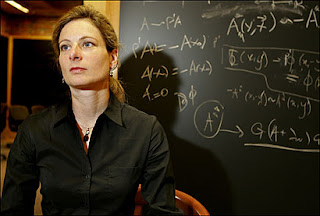 |
| Source: Biography.com |
Dicebat Bernardus Carnotensis nos esse quasi nanos gigantium humeris insidentes, ut possimus plura eis et remotiora videre, non utique proprii visus acumine, aut eminentia corporis, sed quia in altum subvehimur et extollimur magnitudine gigantea.
Translation: Bernard of Chartres used to say that we were like dwarfs seated on the shoulders of giants. If we see more and further than they, it is not due to our own clear eyes or tall bodies, but because we are raised on high and upborne by their gigantic bigness. John of Salisbury, Wikiquote Topics: Bloody Sunday, Civil Rights, Soldier, Voting Rights, Women's Rights
I knew I wanted to talk about this hero on the 50th anniversary of Bloody Sunday. The president will speak today in Alabama, and I would presume some part of his commentary will mention her particular shoulders (like my sister's) that stood up for one like me when I was just learning to walk. Going backwards, as I've stated, violates causality and the 2nd Law of Thermodynamics. It is better to go forward, together, lifted on shoulders that pushed us all here. She and many others, made our foray on astronautics at NASA; education and engineering; sports and politics up to and now inclusive of the presidency possible. The conditions were not as ubiquitous nor taken for granted as they are today. Thus, we have a generation that believes in magic; that neglecting the sacrifices of the past will have no impact on the present; that their rights taken for granted will always be there if they don't act upon them. There wouldn't be an effort at Voter ID for a non-problem, if your voice made no difference; had no impact.
Civil rights activist Amelia Boynton helped Martin Luther King Jr. plan the Selma to Montgomery March on Bloody Sunday, which led to the Voting Rights Act of 1965.
Amelia Boynton was born on August 18, 1911, in Savannah, Georgia. Her early activism included holding black voter registration drives in Selma, Alabama, from the 1930s through the '50s. In 1964, she became both the first African-American woman and the first female Democratic candidate to run for a seat in Congress from Alabama. The following year, she marched on Bloody Sunday. In 1990, Boynton won the Martin Luther King Jr. Medal of Freedom. Today, she tours on behalf of the Schiller Institute.
Also in 1964, Boynton and fellow civil rights activist Martin Luther King Jr. teamed up toward their common goals. At the time, Boynton figured largely as an activist in Selma. Still dedicated to securing suffrage for African Americans, she asked Dr. King and the Southern Christian Leadership Conference to come to Selma and help promote the cause. King eagerly accepted. Soon after, he and the SCLC set up their headquarters at Boynton's Selma home. There, they planned the Selma to Montgomery March of March 7, 1965.
Some 600 protesters arrived to participate in the event, which would come to be known as "Bloody Sunday." On the Edmund Pettus Bridge, over the Alabama River in Selma, marchers were attacked by policemen with tear gas and billy clubs. Seventeen protesters were sent to the hospital, including Boynton, who had been beaten unconscious. A newspaper photo of Boynton lying bloody and beaten drew national attention to the cause. Bloody Sunday prompted President Lyndon B. Johnson to sign the Voting Rights Act on August 6, 1965, with Boynton attending as the landmark event's guest of honor.
Biography.com: Amelia Boynton, Civil Rights Activist
My works at Gallery 737 for Black History Month celebration. My idea was to spark imagination by any means at hand, on paper plates, using cardboard, digital tablet and printer, ideas fanciful and practical.















